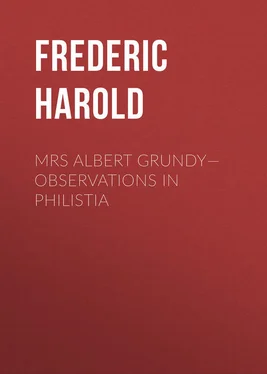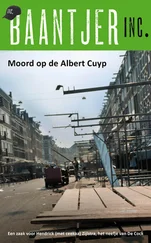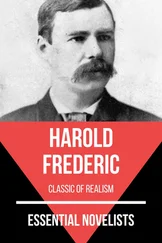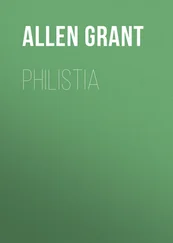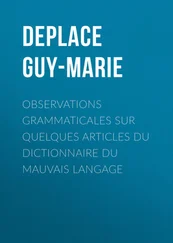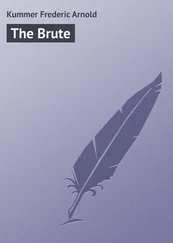Harold Frederic - Mrs Albert Grundy—Observations in Philistia
Здесь есть возможность читать онлайн «Harold Frederic - Mrs Albert Grundy—Observations in Philistia» — ознакомительный отрывок электронной книги совершенно бесплатно, а после прочтения отрывка купить полную версию. В некоторых случаях можно слушать аудио, скачать через торрент в формате fb2 и присутствует краткое содержание. Жанр: foreign_antique, foreign_prose, на английском языке. Описание произведения, (предисловие) а так же отзывы посетителей доступны на портале библиотеки ЛибКат.
- Название:Mrs Albert Grundy—Observations in Philistia
- Автор:
- Жанр:
- Год:неизвестен
- ISBN:нет данных
- Рейтинг книги:5 / 5. Голосов: 1
-
Избранное:Добавить в избранное
- Отзывы:
-
Ваша оценка:
- 100
- 1
- 2
- 3
- 4
- 5
Mrs Albert Grundy—Observations in Philistia: краткое содержание, описание и аннотация
Предлагаем к чтению аннотацию, описание, краткое содержание или предисловие (зависит от того, что написал сам автор книги «Mrs Albert Grundy—Observations in Philistia»). Если вы не нашли необходимую информацию о книге — напишите в комментариях, мы постараемся отыскать её.
Mrs Albert Grundy—Observations in Philistia — читать онлайн ознакомительный отрывок
Ниже представлен текст книги, разбитый по страницам. Система сохранения места последней прочитанной страницы, позволяет с удобством читать онлайн бесплатно книгу «Mrs Albert Grundy—Observations in Philistia», без необходимости каждый раз заново искать на чём Вы остановились. Поставьте закладку, и сможете в любой момент перейти на страницу, на которой закончили чтение.
Интервал:
Закладка:
At three o’clock the ladies took off their bonnets. It was really too bad. Uncle Dudley, strolling in from his nap in the library, suggested that with a lantern we might visit some of the nearer studios: “not necessarily for publication, but as a guarantee of good faith.” Mrs Albert turned a look of tearful vexation upon him, before which he fled.
“There’s this consolation,” she remarked presently, holding me with an unwavering eye: “if we are to be defrauded out of our expedition to-day, that will furnish all the more reason why you should take us next Sunday — the Sunday. You have often talked of having us see the Academicians at home – but we’ve never been.”
“I remember that there has been talk about it,” I said; “but hardly that the talk was mine. Truth is, I don’t know a single Academician, even by sight.”
It was clear that they did not believe me. Mrs Albert continued: “Lady Wallaby expressed surprise, only last evening, that we should consent to go about among the outsiders. She and her daughter never do.”
“Outsiders!” I was tempted into saying. “Why, they can paint the head off the Academy!”
Miss Timby-Hucks simpered outright. “You do say such droll things!” she remarked, somewhat obscurely. “Mamma always declares that you remind her of the Sydney Bulletin .”
“Whom do you take to the Academy Show Sunday? – or perhaps I oughtn’t to ask,” came from Ermyntrude.
“No, we have no right to inquire,” said Mrs Albert; and I turned to the window and the enshrouded lawn once more.
All at once the fog lifted. The bonnets were produced again. Nearly three hours of daylight remained to us. Tidings that the horse was too lame to be taken out only staggered Mrs Albert for the briefest fraction of time. There were still four-wheelers in Gilead. Besides, if the driver happened to be sober, he would know the streets so much better than their stupid coachman. This would be of advantage, because time was so limited. We should have to just run in, say “How-d’ye-do,” take a flying look round, and scamper out again, Mrs Albert said. By firmly adhering to this rule, she estimated that we might do sixteen or seventeen studios.
Heaven alone knows how many we did “do.” Nor have I any clear recollections of what we saw. A confused vision remains to me of long hall-ways lined with frames and packing-cases; half-an-acre, more or less, of painted canvas, out of which only here and there a pair of bright eyes, a glowing field of poppies, or the sheen from a satin gown, fixed itself disconnectedly on the memory; hordes and hordes of tall young women helping themselves to tea and cakes; and always the pathetic figure of the artist’s wife, or sister, tired to very death, standing by the door with a wearied smile on her lips, and the polite falsehood, “So good of you to come!” on her tongue. I wondered, I remember, if she never forgot herself and said instead, “So kind of you to go!” But under Mrs Albert’s system there was no time to wait and see.
Once, indeed, we dallied over our task. Mrs Albert encountered a lady from Wormwood Scrubs of her acquaintance, who was indiscreet enough to mention that she had been asked to stop here for supper. The news spread through the petticoated portion of my group as by magic. Miss Timby-Hucks came over and asked me, so audibly that the artist-host had to blush and turn away, if I didn’t think it would be a deliciously romantic experience to sup in one of these lofty studios, with the gaslight on the armour, and the great, solemnly silent pictures looking down upon us as we ate. Mrs Albert lingered for some time looking at this artist’s work with her head on one side, and eyes filled with rapt, dreamy enjoyment – but nothing came of it.
It was after we had been back in Fern-bank for an hour or more – our own cold repast nearly over – that Mrs Albert thought of something. She laid down her fork with a gesture of annoyance. “It has just occurred to me,” she said; “we never went to that Mr Whistler’s, whose pictures are on exhibition in Bond Street. Everybody’s talking about him, and I did so want not to miss his studio.”
“I don’t think he has a Show Sunday,” I said. “I never heard of it, if he has.”
“O no, it is only these last few weeks that anybody has heard of him,”
Mrs Albert replied. “I read the first announcement about his beautiful pictures in The Daily Tarradiddle only the other day.”
“Whistler? Whistler?” put in Uncle Dudley. “Why, surely he’s not new. Why – I remember – he was mixed up in a law-suit, wasn’t it, years ago?”
“O no, Dudley,” responded Mrs Albert; “I was under that same impression, till Lady Wallaby set me right. It seems that was another man altogether – some foreign adventurer who pretended to be able to paint and imposed upon people – don’t you recall how The Tarradiddle exposed him? – and Mr Burnt-Jones had him arrested, or something – O, quite a dreadful person. But this Mr Whistler is an Englishman. I read in The Illustrated London News that he represented modern British Art. That alone would make it quite clear it was a different man. I did so want to see him! Lady-Wallaby tells me she has heard he is extremely amusing in his conversation – and quite presentable manners, too.”
“Why don’t you ask him to dinner?” said Mr Albert Grundy. “If he’s amusing it’s more than most of the men you drum up are.”
“You seem to think everybody can be asked to dinner, Albert,” the lady of the house replied. “Artists don’t dine – unless they are in the Academy, of course. Tea, yes – or perhaps supper; but one doesn’t ask people to meet them at dinner. It’s like actors – and – and non-commissioned officers.”
Affording a Novel and Subdued Scientific Light, by which divers Venerable Problems may be Observed Afresh
It is my opinion,” said Uncle Dudley, stretching out his slippered feet, and thrusting his thumbs into the armholes of his waistcoat – “it is my opinion that women are different from men.”
“Several commentators have advanced this view,” I replied. “For example, it has been noted that the gentle sex cross a muddy street on their heels, whereas we skip over on our toes.”
“That is interesting if true,” responded Uncle Dudley. “What I mean is that all this talk about the human race is humbug. There are two human races! And they are getting wider apart every few minutes, too!”
“Have you mentioned this to any one?” I asked.
Uncle Dudley went on developing his theme. “I daresay that for millions of years after the re-separation of the sexes this difference was too slight to be noticed at all. The cave man, for instance – the fellow who went around hunting the Ichthyosaurus with a brick tied on the end of an elm club, and spent the whole winter underground sucking the old bones, and then whittling them up into Runic buttons for the South Kensington Museum: I suppose, now, that his wife and sister-in-law, say, didn’t strike him as being specially different from himself – except, of course, in that they only got plain bones and gristle and so on to eat, whereas all the marrow and general smooth-sailing in meats went his way. You , can’t imagine him saying to himself: ‘These female people here are not of my race at all They are of another species. They are in reality as much my natural enemies as that long-toed, red-headed, brachycephalous tramp living in the gum-tree down by the swamp, who makes offensive gestures as I ride past on my tame Ursus spelous ’ – now, can you?”
I frankly shook my head. “No, I don’t seem to be able to imagine that. It would be almost as hard as to guess off-hand where, when, and how you caught this remarkable scientific spasm.”
Читать дальшеИнтервал:
Закладка:
Похожие книги на «Mrs Albert Grundy—Observations in Philistia»
Представляем Вашему вниманию похожие книги на «Mrs Albert Grundy—Observations in Philistia» списком для выбора. Мы отобрали схожую по названию и смыслу литературу в надежде предоставить читателям больше вариантов отыскать новые, интересные, ещё непрочитанные произведения.
Обсуждение, отзывы о книге «Mrs Albert Grundy—Observations in Philistia» и просто собственные мнения читателей. Оставьте ваши комментарии, напишите, что Вы думаете о произведении, его смысле или главных героях. Укажите что конкретно понравилось, а что нет, и почему Вы так считаете.
